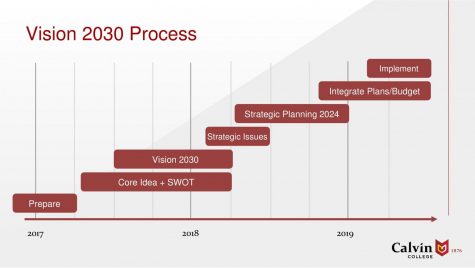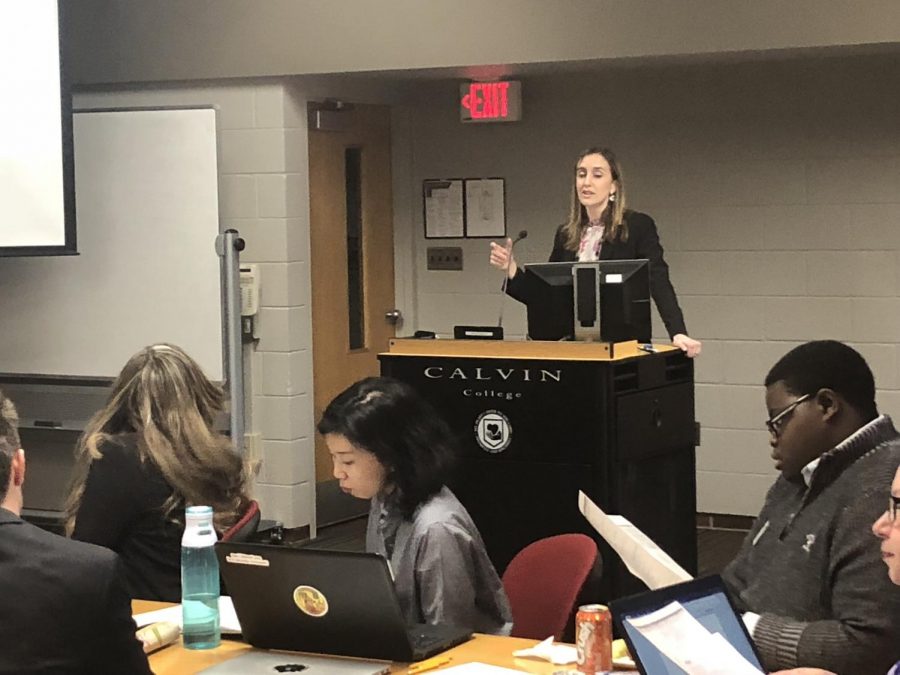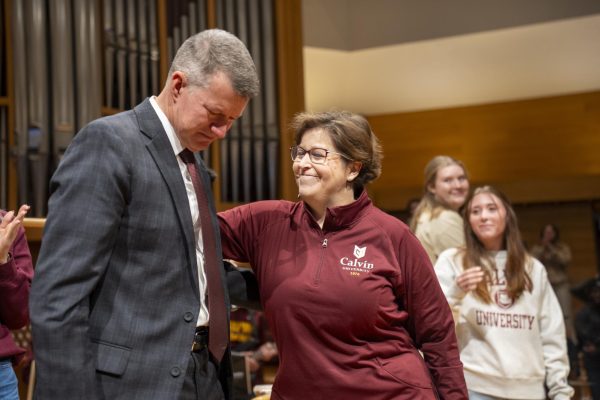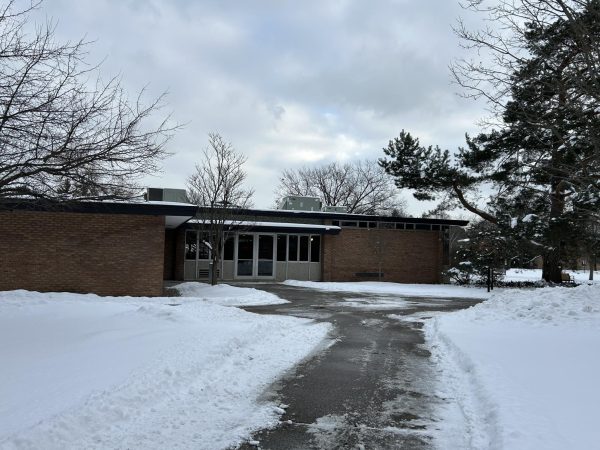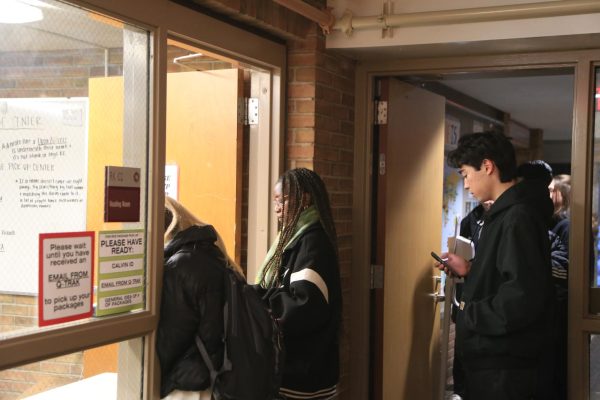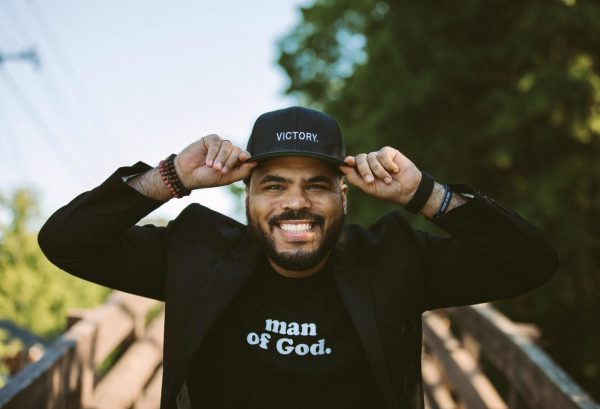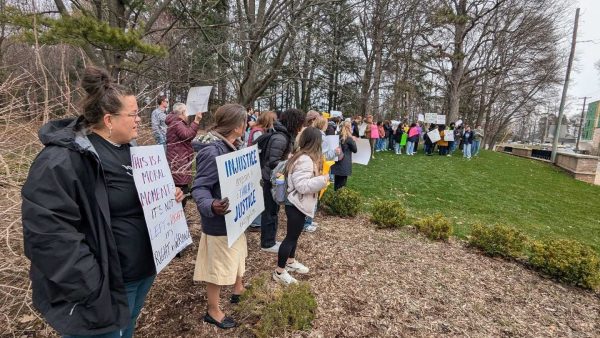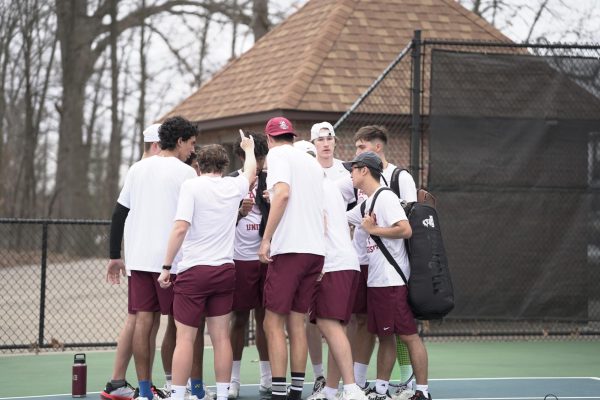Students approve of draft vision statement
Students expressed enthusiasm for Calvin’s draft vision statement at a forum hosted by President Michael Le Roy and Sarah Visser, vice president for student life, on Monday, Feb. 26.
The forum took place during the second half of a student senate meeting, and most of the attendees were student senators.
After introductions by Visser and sophomore Wesley Brooks, student representative on the Vision 2030 team, Le Roy explained the statement in detail. (See Chimes article linked above for a summary of Le Roy’s comments at a previous forum.)
Visser then asked attendees to discuss the statement in groups. A member of the Vision 2030 team was available in each group to answer students’ question and gather feedback.
Junior Arie Williams suggested that the statement’s first sentence might seem overly poetic and confusing if the reader isn’t familiar with the scriptural references to Jeremiah and Revelation.
While many students approved of the vision for an “expanded global influence” by 2030, they also wanted to make sure Calvin has a plan for how to get there.
“Calvin needs to be very specific about how to achieve that,” said Purun Yeo, a sophomore student senator.
Senior Hallie Litt, student senate’s vice president for representation, also commented that, though a global influence is ideal, it’s difficult to implement.
Students had similar reactions to the statement’s emphasis on “diversity and inclusion,” which is listed as one of the pairs of values below the primary six sentences.
Sophomore Phan Nguyen said that, beyond increasing on-campus diversity, Calvin needs to acknowledge and plan for the challenges of making everyone feel welcome:
“It’s not something the school can just enforce,” he said. “You need to focus on it more and create more opportunities for culture to blossom in this environment.”
Senior Andrew Oppong, student body president, praised the rebranding to Calvin University, which will better communicate Calvin’s identity in countries where “college” often means “high school.”
Oppong also said that international students would be more attracted to a university model because applying for graduate programs in the U.S is a “tedious process.”
“If Calvin had a masters of public policy, I would stay here,” Oppong said.
After the forum, Visser said the students at the forum raised similar points about the statement as faculty and staff had.
“Students see it through the eyes of future students,” said Visser. “I heard the same enthusiasm and inspiration and also [the] same questions about ‘how do we actually operationalize this?’”
Williams said that the statement’s aspirational goals about diversity, inclusion and global reach will offer Calvin a healthy challenge:
“Calvin is very good at doing what it does, but when it comes to doing things that are maybe a bit risky or a bit scary, it’s going to be hard to make that initial push,” she said. “But I think once we do make that push it’ll be a rewarding experience.”
After the Vision 2030 team has finished collecting feedback from students, faculty and staff, they plan to present a final version of the vision statement to the board of trustees for approval in May.
